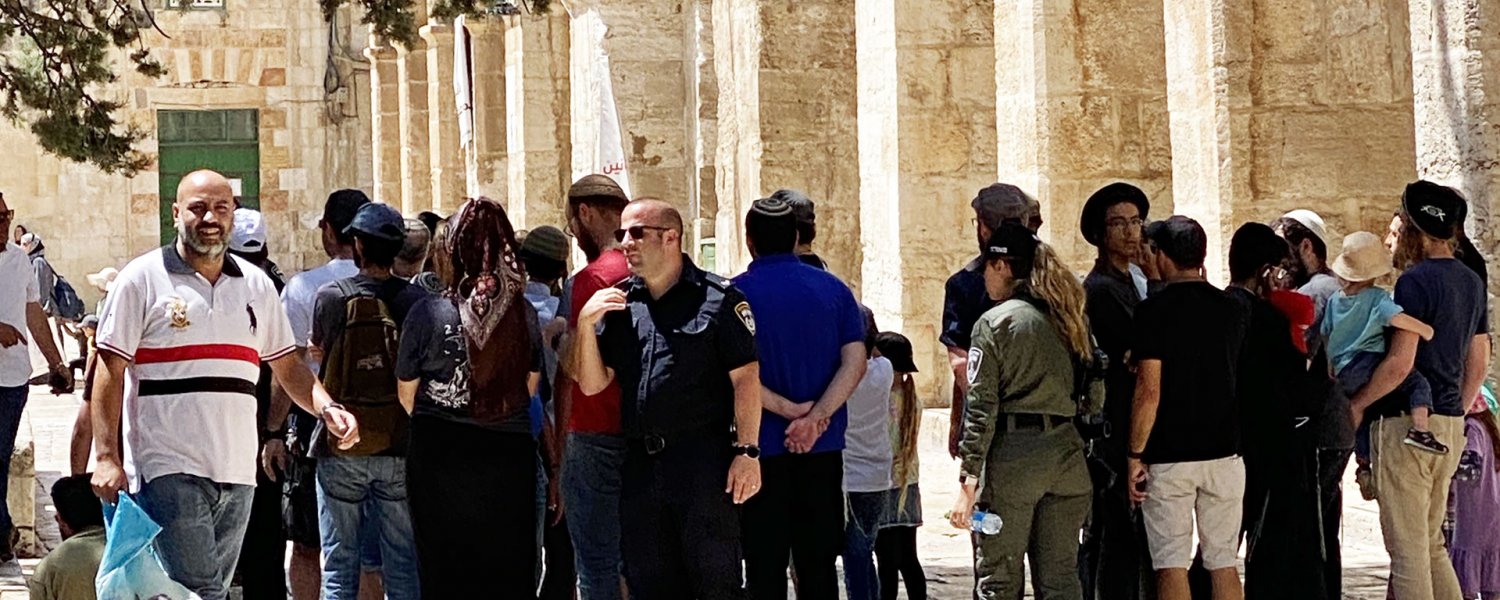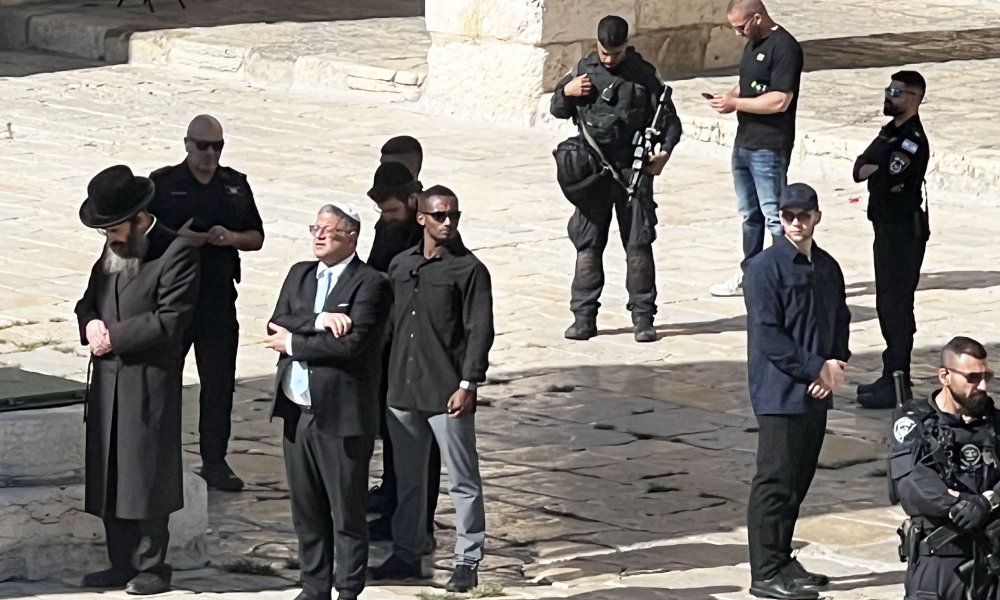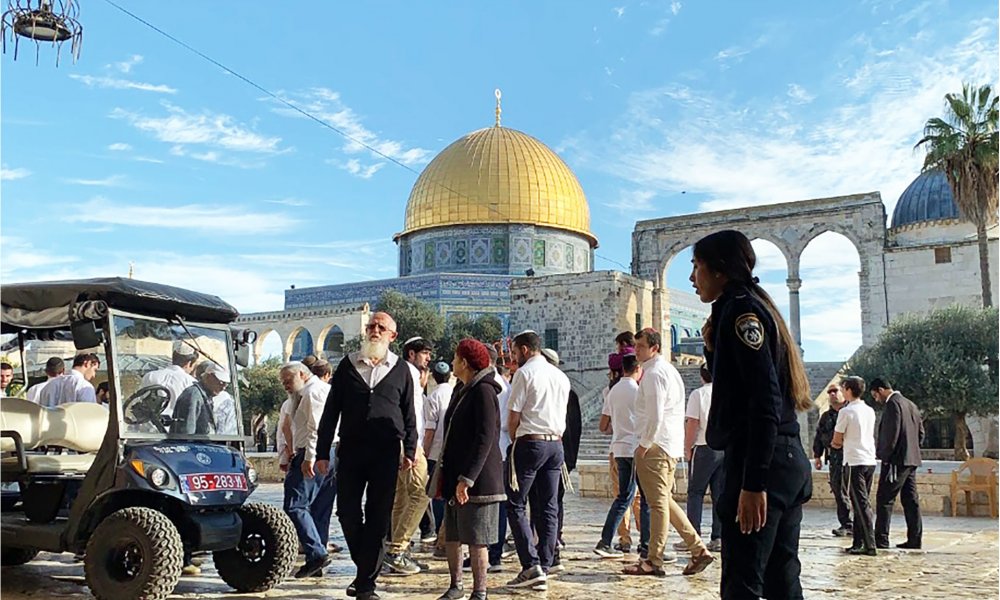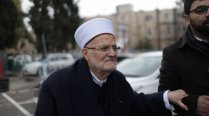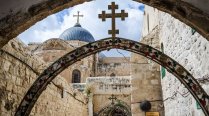Long simmering tensions at Islam’s third holiest site, al-Haram al-Sharif compound, boiled over this week when Israeli Minister of National Security Itamar Ben-Gvir again insisted in an interview that Jews have the right to pray there.
Then, when asked if he would build a Jewish synagogue on the holy site if he could, he answered yes.1
His exact words were: “There is a directive that there should be equal law between Jews and Muslims . . . With all due respect, I was elected for this very reason: to ensure that there is no discriminatory policy on the Temple Mount [i.e., al-Haram al-Sharif compound —Ed.] and that there is no capitulation to Hamas on the Temple Mount.” And, “If I was able to do anything I wanted to do at the Temple Mount, the flag of Israel would have been raised there long ago.”2
Ben-Gvir’s comments, uttered live on Israel’s Army Radio, August 26, 2024, drew criticism from his own fellow cabinet minister, the minister of defense, as well as from senior US officials and a myriad of Islamic countries including Egypt, Turkey, Saudi Arabia, Jordan, Qatar, Indonesia, Afghanistan, and Palestine. The Organization of Islamic Cooperation also denounced Ben-Gvir’s comments.3
Israel’s defense minister as well as the office of the Israeli prime minister all reiterated the safe phrase, namely, that the Status Quo has not changed. “Challenging the Status Quo on the Temple Mount [the term Jews use to refer to the site] is a dangerous, unnecessary, and irresponsible act,” Defense Minister Yoav Gallant wrote on X. “Ben-Gvir’s actions endanger the national security of the State of Israel and its international status.”4
But events on the ground continue to suggest otherwise.

